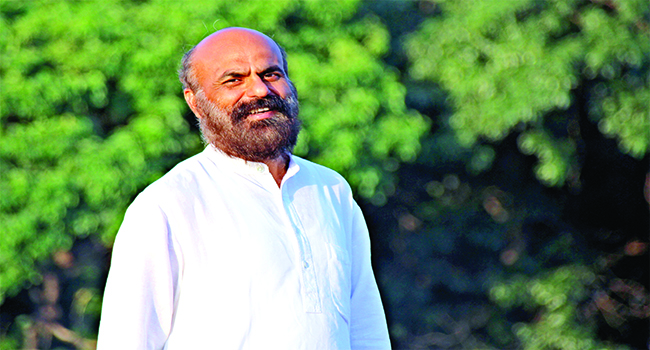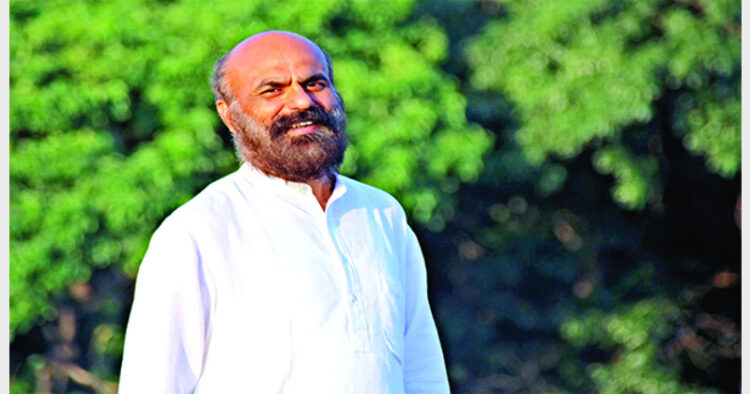It is by understanding the importance of the role played by our choice and taste as individuals in shaping our destiny during our life that the mystery and simplicity is carried through the principles of Satsang

“Viveka (discernment) is received through satsang. And, Sat-sang becomes amenable to fortunate ones only with the grace of The Eternal Being.” This is Aadhyaatmik-siddhaant (realised truth) as is seen by seers in their state of clairvoyance. And, in voluminously available literature elucidating Indic spiritual traditions, one may find as many examples to support the aforesaid Aadhyaatmik Siddhant (eternal principle) as one wishes to see but, one can’t find even a single example against this principle in the same literature. This can be seen as one more evidence of the eternal Indic spiritual traditions being seamlessly coherent from end to end. This eternal principle gets verified and reiterated through the lives of the upholders of the sanatana guru shishya parampara (the eternal guru disciple relationship) incessantly. That’s how it’s kept acknowledged and asserted incessantly.
Sometimes the number of the realised ones go down at other times it rises up. An increase in the number of realised individuals among us translates into auspiciousness and as a result earth witness phases of harmony.
How to explain this increase in the number of realised individuals? Does the principle enunciated at the outset is interpreted to mean as if individuals have no say in their becoming wise (vivek-sheel)?
It is these kind of interpretations which mislead even well-meaning and intelligent beings, and many begin to attribute everything on their fate. The principle seems to suggest that receiving satsang is in the hands of The ‘Eternal Being’. That is, whosoever receives the grace of eternal being receives sat-sang.
So, who is this Eternal Being? Whom none knows fully except the Being that-self, perhaps. Whom no one can define or identify, but with whom everyone can identify themselves, who has all the names and none too, who has all the forms and is formless too, who is everywhere and nowhere too, in whom all opposites find their rightful space peacefully without much ado. The description of that unknown one is endless.
Isn’t it contradictory? Generally, we describe someone or something about whom we know moreover, howsoever detailed our description about them or that may be, it finally ends at some point. But, here, the object is unknown, yet the description of the object is endless!
How is it decided, and who decides whether ‘you and I’ are not receiving the grace of that Eternal Being all the time?
It is by understanding the importance of the role played by our choices and taste as individuals in shaping our destiny during our life that the mystery and simplicity that is carried through the principle of sat-sang keeps becoming clearer to us.
And, when we understand the real impact of our choices on our lives and how this endeavour refines our taste, we realise that our inclination to uphold higher values keeps becoming more intense. And, we begin to dwell deeper, and as a result, our urgency for self-disciplining becomes self-fuelling and self-driven.
It is only in the higher stages of consciousness (where one’s discernment becomes such that one will not choose anything which is not driven by the spirit of selflessness) that the need to help one in choosing only that which will lead to the ultimate welfare of all arises.
Guru Parampara says that in the initial stages of our spiritual journey, we don’t know the real value of sat-sang and the intensity of dependence on guru-tattva because it is unlike a worldly journey.
In the worldly journey, a child’s need for mother’s attention and teacher’s attention keeps decreasing as the child keeps growing. In the spiritual journey, the process is reversed. It is only in the higher stages of spiritual realisation that our dependence increases on the one in whom we see Eternal Being or, at least, the more evolved form of divinity than ourselves. The roots of this tree of knowledge are up. Is knowledge religious or spiritual? What does your Viveka (wisdom) say?
(The writer is the propounder of Sahaj Smriti Yog System of Self Realisation and founder of Darpan Foundation and Darpan Ashram)













Comments